
Iran competed at the 2004 Summer Olympics in Athens, Greece, from 13 to 29 August 2004. The nation has competed at every Summer Olympic games, since its official debut in 1948 with the exception of the 1980 and 1984 Summer Olympics. The National Olympic Committee of the Islamic Republic of Iran sent a total of 38 athletes, 37 men and 1 woman, to compete in 10 sports. Half-lightweight judoka Arash Miresmaeili, who later forfeited his first match against Israel's Ehud Vaks for medical reasons, was the nation's flag bearer in the opening ceremony.

Israel has competed at the Olympic Games as a nation since 1952. Its National Olympic Committee was formed in 1933 during the British Mandate of Palestine. Israel has sent a team to each Summer Olympic Games since 1952 and to each Winter Olympic Games since 1994. The country became a member of the European Olympic Committees (EOC) in 1994.
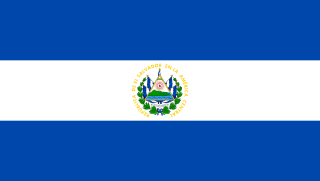
El Salvador first competed in the Olympic Games at the 1968 Summer Olympics in Mexico City, Mexico. It has participated in every Summer Olympic Games since that time, excluding those held in 1976 and 1980, when the nation joined the American-led boycott in protest of the Soviet invasion of Afghanistan. They have never competed in the Olympic Winter Games. El Salvador has not earned a medal at any Olympic Games.

Haiti sent a delegation to compete in the 2008 Summer Olympics, held in Beijing, People's Republic of China, from August 8 to August 24, 2008. Its participation in Beijing marked its seventh consecutive appearance at the summer Olympics and its fourteenth appearance overall, with its first being at the 1900 Summer Olympics in Paris. The Haitian Olympic team included seven athletes participating in track and field, boxing, and judo. More women participated for Haiti in 2008 than at any single Olympic games prior. Although Pierre and Dorival advanced to quarterfinals in their events, there were no Haitian medalists in Beijing. Brutus carried his country's flag at the ceremonies.
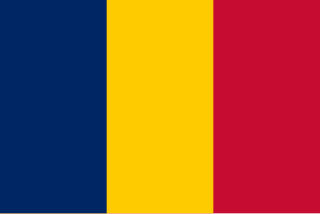
Chad competed at the 2012 Summer Olympics in London, which was held from 27 July to 12 August 2012. This marked the nation's eleventh appearance at the Summer Olympics since its debut in the 1964 Summer Olympics. The Chadian delegation included track and field athlete Hinikissia Ndikert and judoka Carine Ngarlemdana. Ngarlemdana was the flag bearer for the opening ceremony and Ndikert was the flag bearer for the closing ceremony. Neither of Chad's athletes progressed beyond the first round of their events. Chad was one of only two countries to have a female-only team at the 2012 games.

Djibouti competed at the 2012 Summer Olympics in London, from July 27 to August 12, 2012. This was the nation's seventh appearance at the Olympics.

Cambodia, which is represented by the National Olympic Committee of Cambodia (NOCC), competed at the 2012 Summer Olympics in London from 27 July to 12 August 2012. Six Cambodian athletes competed in the disciplines of track and field athletics, swimming, taekwondo, and judo.
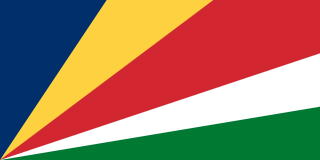
The African island country of Seychelles competed at the 2012 Summer Olympics in London, United Kingdom, held from 27 July to 12 August 2012. This was the nation's eighth appearance at the Olympics, except the 1988 Summer Olympics in Seoul because of its partial support to the North Korean boycott.

Mongolia competed at the 2016 Summer Olympics in Rio de Janeiro, Brazil, from 5 to 21 August 2016. Since the nation made its debut in 1964, Mongolian athletes had appeared in every edition of the Summer Olympic Games, with the exception of the 1984 Summer Olympics in Los Angeles, because of its partial support to the Soviet boycott.

Gabon competed at the 2016 Summer Olympics in Rio de Janeiro, Brazil, from 5 to 21 August 2016. This was the nation's tenth appearance at the Olympics.

Senegal competed at the 2016 Summer Olympics in Rio de Janeiro, from August 5 to 21, 2016. It was the nation's fourteenth consecutive appearance at the Summer Olympics since its debut in 1964.
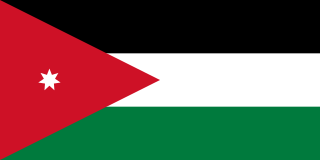
Jordan competed at the 2016 Summer Olympics in Rio de Janeiro, Brazil, from 5 to 21 August 2016. This was the nation's tenth consecutive appearance at the Summer Olympics.

Ghana competed at the 2016 Summer Olympics in Rio de Janeiro, Brazil, from 5 to 21 August 2016. This was the nation's fourteenth appearance at the Summer Olympics, having taken part in all but three editions since its debut at the 1952 Summer Olympics. Ghana did not attend the 1976 Olympics because of the African boycott and did not attend the 1980 Olympics because of the United States boycott.

Libya competed at the 2016 Summer Olympics in Rio de Janeiro, Brazil, from 5 to 21 August 2016. This was the nation's eleventh appearance at the Olympics since its debut at the 1964 Summer Olympics in Tokyo; seven of them were represented by the Libyan athletes under the name Libyan Arab Jamahiriya.
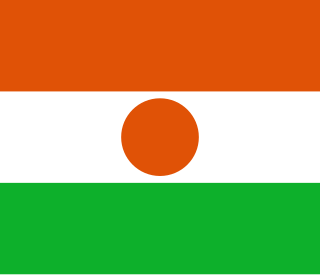
Niger competed at the 2016 Summer Olympics in Rio de Janeiro, Brazil, from 5 to 21 August 2016. Since the nation made its debut in 1964, Nigerien athletes had participated in every edition of the Summer Olympic Games, except for two rare occasions, the 1976 Summer Olympics in Montreal, and the 1980 Summer Olympics in Moscow because of the African and the US-led boycotts, respectively.

Mali competed at the 2016 Summer Olympics in Rio de Janeiro, Brazil, from 5 to 21 August 2016. Since the nation made its debut in 1964, Malian athletes had appeared in every edition of the Summer Olympic Games, with the exception of the 1976 Summer Olympics in Montreal because of the African boycott.

The Refugee Olympic Team competed at the 2016 Summer Olympics in Rio de Janeiro, Brazil, from 5 to 21 August 2016, as independent Olympic participants. In March 2016, the International Olympic Committee (IOC) President Thomas Bach declared that the IOC would choose five to ten refugees to compete at the Rio Olympics, in the context of the "worldwide refugee crisis", of which the European migrant crisis is a prominent part. Additionally, as part of an effort "to show solidarity with the world's refugees", the United Nations Refugee Agency selected Ibrahim Al-Hussein, a Syrian refugee residing in Athens, Greece, to carry the Olympic flame through the Eleonas refugee and migrant camp in the city as part of the 2016 torch relay.
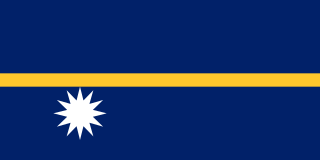
Nauru competed at the 2016 Summer Olympics in Rio de Janeiro, Brazil, from 5 to 21 August 2016. The country's participation in Brazil was its sixth consecutive appearance at the Summer Olympics since its debut at the 1996 Summer Olympics. Nauru's delegation included two participants: Ovini Uera, a judoka in the men's middleweight judo category; and Elson Brechtefeld in the men's 56 kg weightlifting competition. Uera qualified as Nauru's top-ranked judoka, in the IJF World Ranking List through a quota slot from the Oceania Judo Union. Brechtefeld qualified by grant from the International Weightlifting Federation of an unused quota place. Uera was eliminated by Varlam Liparteliani in the round of 16 and Brechtefeld finished 15th in his event.

Afghanistan competed at the 2016 Summer Olympics in Rio de Janeiro, Brazil, from 5 to 21 August 2016. The country's participation at Rio de Janeiro marked its fourth consecutive appearance at the Summer Olympics and fourteenth in total. Afghanistan had officially made its debut in 1936 and missed five editions since then. Rohullah Nikpai, who had previously won a medal for Afghanistan in taekwondo, did not participate. Afghanistan failed to earn a single Olympic medal in Rio for the first time since 2004.
Tarek Ayad is a Libyan judoka. He competed in the men's half-lightweight event at the 2000 Summer Olympics.



















